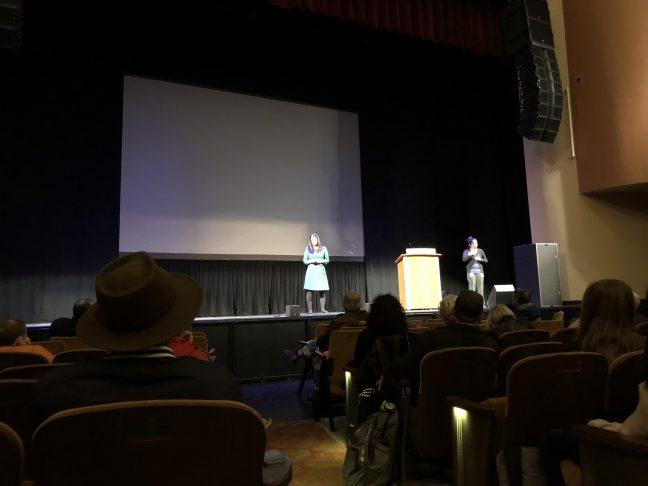Wisconsin Union Directorate Distinguished Lecture Series and the Robert F. and Jean E. Holtz Center hosted Dr. Mona Hanna-Attisha to discuss the water crisis in Flint, Michigan.
Pediatrician, scientist and activist, Hanna-Attisha told the story of her role in uncovering the Flint water crisis and her efforts to help aid recovery.
Hanna-Attisha explained Flint’s affluent and progressive past and described how the city was home to the greatest per-capita income in the U.S. in the 1970s. After decades of man-made crises, the city decided to switch their water source from the Great Lakes to a local Flint river in 2011, Hanna-Attisha said.
According to Hanna-Attisha, the water from this new source was not treated properly and was missing corrosion control. This caused chemical cascade inside old pipes and allowed lead to leak into the town’s water supply.
As a pediatrician, she did not originally think of water as a possible health issue for her patients. Nevertheless, she said, citizens began noticing color, odor and taste issues in their water, yet Flint officials still assured residents that the water was safe to drink and bathe in.
After she heard about the lead leakage, Hanna-Attisha took action. She presented research at press conferences that found children were specifically at risk and asked the state to return to the original water source, the Great Lakes.
“As a pediatrician, I literally took an oath to protect kids and their potential, but I could argue that we all implicitly take a similar oath,” Hanna-Attisha said. “It is all our very civic and human responsibility to stand up for kids.”
Michigan rejected her evidence for months until the state finally conceded, exposing the crisis and returning to the original water source of the Great Lakes within two weeks.
Hanna-Attisha pointed out what can be learned from Flint, and explained how the Flint story is not only one of crime, but of everyday people and their efforts to seek safe water.


